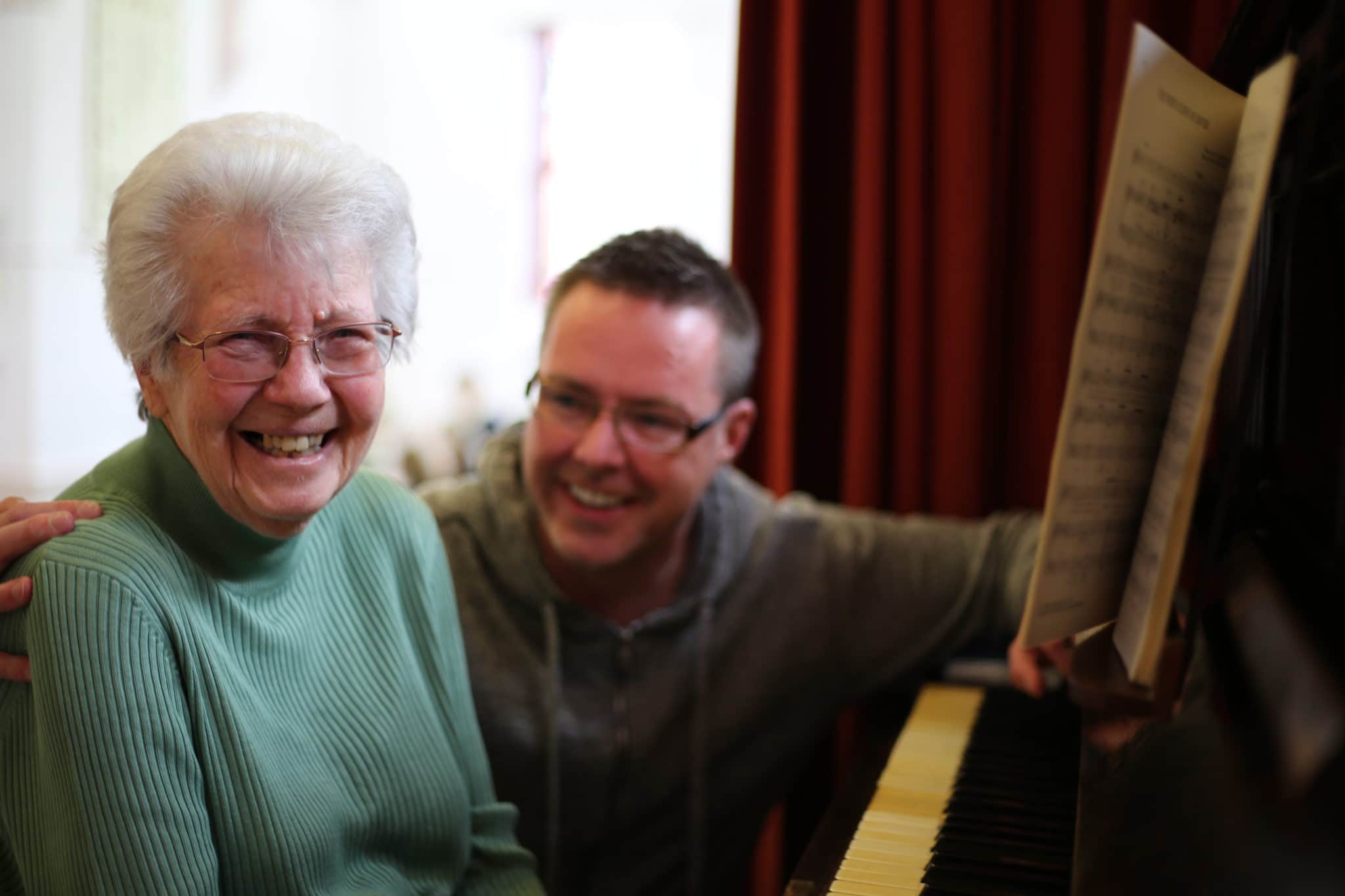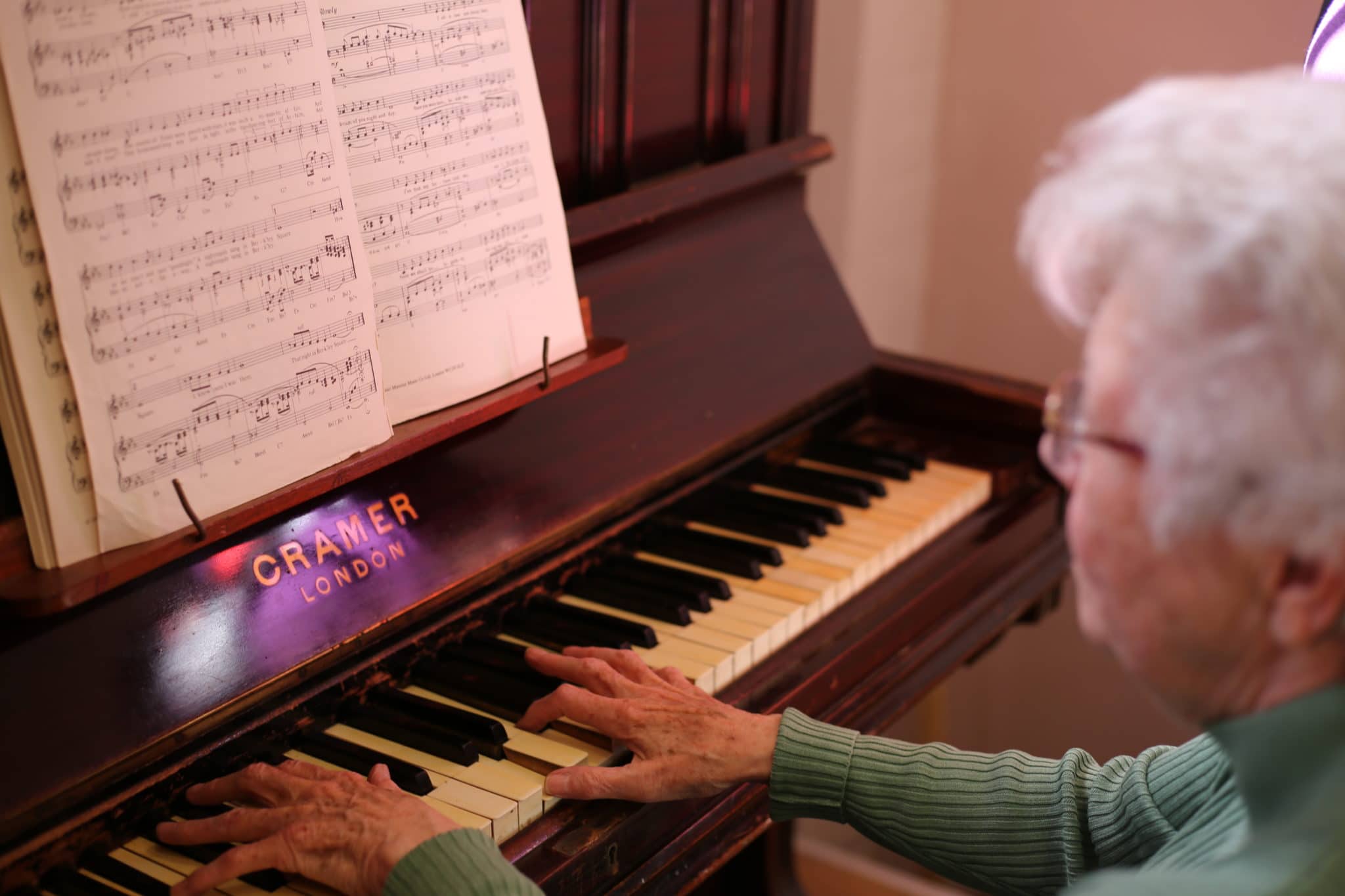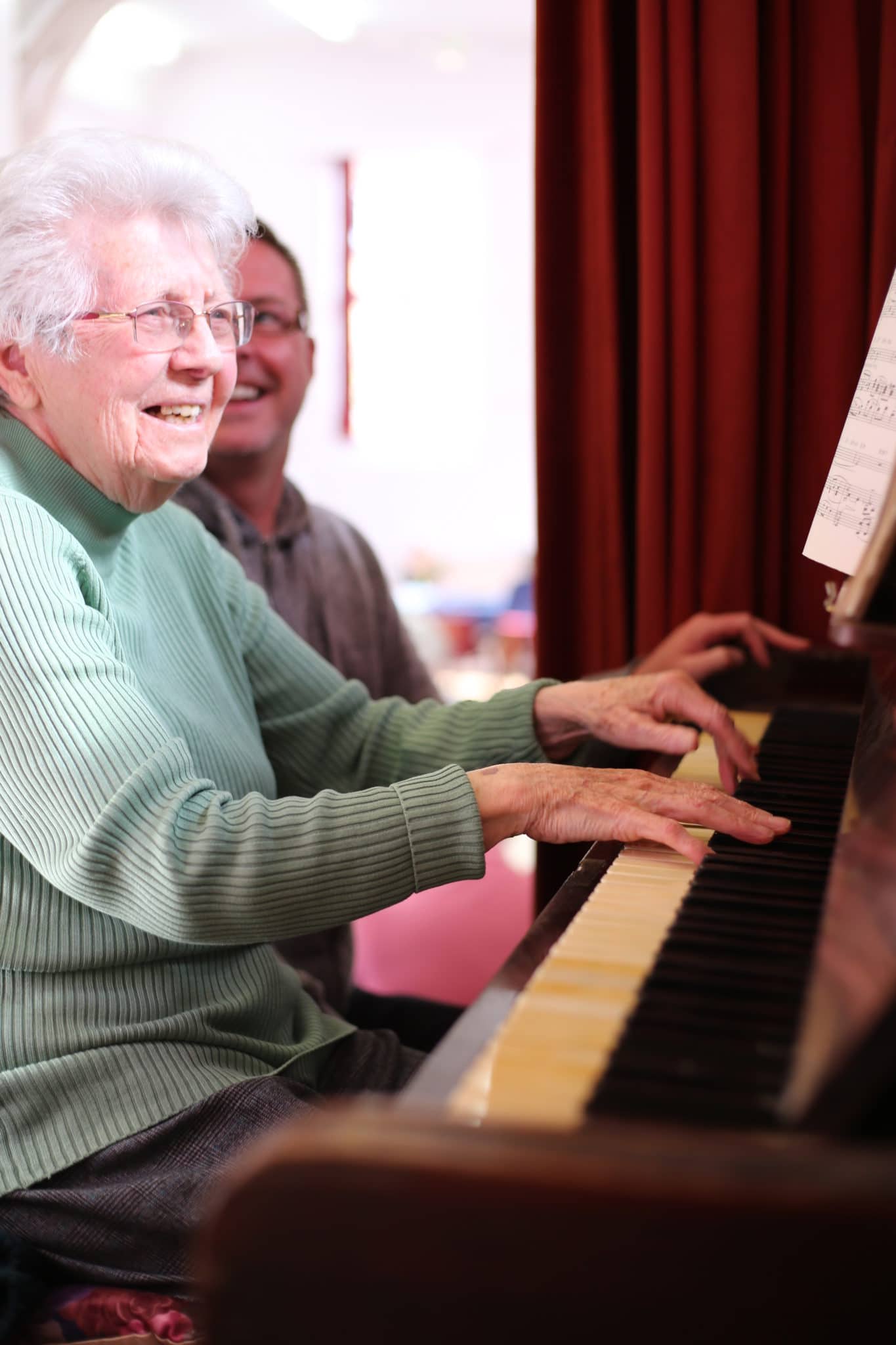This article was initially published on 09/07/18, and has been updated for accuracy on 06/04/21.
Dementia can have a tremendous impact on the person living with it, but also their family and loved ones. There are many types of dementia, including Alzheimer’s and vascular dementia, and the symptoms differ between each type. However, because dementia affects the brain, one of the most common symptoms is noticeable memory loss and having difficulty with tasks that they could do with ease before their diagnosis.

There are many different techniques that you can use to alleviate the symptoms of dementia, which can help ease the challenges faced by someone who is living with the condition, and those closest to them. It has been found that music can have an influence on dementia, it can work towards ‘unlocking’ memories and reaching parts of the brain which other forms of communication cannot.
Simon, a Helping Hands carer in the Warwickshire region, understands the importance of using music as a tool to comfort and help bring back treasured memories. He regularly takes a lady he supports, Gwenda, to a café where she interacts with other individuals who have been diagnosed with dementia. It is a place where they can play games, chat, and eat delicious cakes together.
Gwenda (pictured above with Simon) had been a headmistress and would always play the piano during assemblies, entertaining the children with hymns and popular songs. While in the café, she continues to entertain the other visitors with songs she recalls from this time, with them often singing along.
Seeing the effect this activity has on Gwenda, Simon encourages others to try using music within their care. He notes that “she shines when she plays” and enjoys seeing her recalling happy memories.

Using music within dementia care
Music can be an incredibly useful tool when caring for someone living with dementia. It can help to calm someone, change their mood, connect with others and even reduce the feelings of isolation often associated with dementia. Playing soothing or familiar music can result in an emotional reaction, which can be explained through the initial development of the brain.
“We know that the auditory system of the brain is the first to fully function at 16 weeks, which means that you are musically receptive long before anything else,” explains Professor Paul Robertson, a concert violinist who later went on to study the connection between music and dementia. “So, it’s a case of first in last out when it comes to a dementia-type breakdown of memory.”
This means that someone with dementia loses their most recent memories first, and they remember their oldest memories most strongly. To start, you could try playing your loved one a song that once meant a lot to them. This could be the music they had their first dance to, a favourite song from their youth, or one that might remind them of a special occasion.
It is important to remember to watch their reaction as the music plays. If they appear to be uncomfortable or agitated, turn the music off. It could be down to something as simple as the wrong song choice, or perhaps they are not in the right frame of mind, so try it again at a later time with another genre of music or a different time of day.
Singing to unlock memories
Nicola is a carer and supervisor in the Warrington and St Helens area and has also had a first-hand experience of the effect music can have on someone who is living with dementia.
She says, “Every Wednesday I care for a lady for 11 hours and during that time, I take her to a group called Memory Lane. We sing along to old songs together and this seems to comfort her.”
Nicola shared that while at first the lady would not join in, she soon started to sing with the rest of the group and also played the tambourine in time with many of the songs. Nicola has been able to see other improvements in the lady’s mood and awareness as the group offers vital social stimulation. She added, “The interaction that happens is amazing!”.
Music as a bridge in time
Andrew, a live in care giver, has also been using music as a tool for a number of years and has been able to see the impact it can have. Prior to joining Helping Hands, Andrew often held workshops where he invited individuals who had been diagnosed with dementia to come and listen to various songs together. He said, “I was using music in order to connect with people at deeper levels than we can achieve with verbal communication.”
Andrew then brought this experience to his role as a live-in carer. While caring for a gentleman who was living with the effects of dementia, he found that he was able to help him reconnect with his past.
“He was always sharing stories about his time in the RAF during WWII, so I researched popular music from this time. This is how I stumbled across Vera Lynn and I quickly created a compilation of her songs which lasted over an hour and played it to him the next time he seemed agitated.”
The impact this had on the gentleman was more than Andrew could have hoped for.
“The result was amazing,” he said. “The most interesting part is that he remembered all the lyrics, and he would sing for hours and hours.”

Supporting a loved one with dementia
These personal accounts show the benefits of music to those living with dementia, the flexibility and familiarity of it. As research shows, using music when caring for an individual with dementia can not only help the individual to feel genuinely relaxed and comforted, but it can also help you to understand the progression of their condition and what makes them feel happy.
Here at Helping Hands, we believe that dementia care at home can provide you and your loved ones with the tools you need to live comfortably at home, with more time to spend together as a family. Whether you think they’d benefit from some companionship, or perhaps your loved one would like some support getting out of the house, our person-centred care is tailored around you and your needs.
For more information, please call 0330 029 8699 or request a callback and we will call you.
Page reviewed by Deanna Lane, Senior Clinical Lead on March 24, 2022
